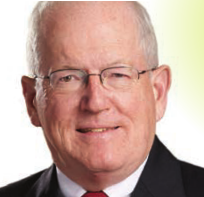State races will decide the fate of 430 seats, including governor and Executive Council
On Columbus Day weekend (or for those otherwise inclined, Indigenous Peoples Day Weekend), on a ride around the Sunapee region, several political signs for candidates for Congress and governor were prominently displayed. That is not unusual in New Hampshire, except for the fact that there is no election for either governor or Congress in 2023, and the next election is 13 months away!
On that same ride, I was listening to reports about the ridiculous events in the U.S. House of Representatives, where the Republicans refuse to act like adults or govern, and threaten to hand power over to the Democrats through pure incompetence. Firing a marginal speaker who had the affrontery to team up with Democrats to keep the government operating, now deemed a capital offense, the GOP seemed unable to find anyone dumb enough to take the job. (They finally settled for Louisiana’s Mike Johnson.)
The next story was about the former president, indicted four times, expressing his opinion on foreign policy and the economy, after emerging from a New York courtroom where a judge had already found him to have committed fraud as a matter of law. The commentator reported that he is the frontrunner in the Republican primary. Say again?
So, as we sit in the autumn of 2023, just 3.5 months from the New Hampshire primary and 11 months from the 2024 general election, where do things stand?
In the presidential primary, Republicans need to narrow the field fast, so one or maybe two candidates can face Trump and give him a run for his money, or the GOP will be conceding the votes of serious voters to any Democratic alternative. In the Democratic primary, President Biden seems to have blown his only chance to win the primary as a candidate on the ballot, although he probably will win it on a write-in effort, since no one else may be on the ballot — Robert Kennedy having apparently decided to run as an independent. Biden has not done himself any good with this foolishness.
On the state level, no U.S. Senate election will be on the ballot in 2024. For Congress, where the GOP has conceded the elections for years, First District GOP candidate Russell Prescott is developing a campaign to challenge Congressman Chris Pappas, although the lack of ability to run Congress by the GOP threatens any Republican candidate. Pappas remains strong, and will be the favorite candidate if he decides to run again.
In the Second District, where Congresswoman Annie Kuster seems to have a firm hold on the seat, no seriously funded GOP candidate has run for several contests. If one were to emerge, it will be interesting to see if that seat is as safe for Democrats as it seems.
The most interesting contest may be the race for governor, with the seat open for the first time in eight years, as Chris Sununu has announced his retirement. Former Sen. Kelly Ayotte came out swinging for the GOP nomination, raising a large amount of money, garnering impressive endorsements, and apparently helping to persuade Education Commissioner Edelblut not to run. In response, former state Senate President Chuck Morse held a major fundraiser, demonstrated the ability to raise funds and established himself as a major candidate.
On the Democratic side, Manchester Mayor Joyce Craig garnered many endorsements from party and labor stalwarts, while Executive Councilor Cinde Warmington may have more statewide support. No Manchester mayor has ever gone on to the corner office, and with the exception of former Congressman Frank Guinta, no mayor has gone on to higher office, although both Ray Wieczorek and Ted Gatsas became executive councilors. Although running in a presidential year brings the issue of coattails, the betting now seems to be on Ayotte as the next governor.
The state House of Representatives, now equally divided, will be a barometer of party strength, more than any other measure. Both parties will be trying hard for a majority that can control, although the shared governance model in effect might be a better one.
In the state Senate, after the redistricting done in 2021, the GOP should have the advantage, although decisions not to run, personalities and funding all make a difference.
So, a year out from anything meaningful, all voters should keep what is coming up in mind. We are now far enough out from the elections that citizens should consider who they would like to see run for and hold office. On the state level, we have one governor, five executive council members, 24 senators and 400 members of the house. That is 430 seats, meaning it should attract 860 quality candidates in a perfect world.
We all know it is not a perfect world, but this would be a good time for people to start thinking about whether they, or people they know, should consider seeking one of the offices. While it’s a lot of work, state service is not only is fascinating, it is important, and if not you, then who?
Brad Cook is a Manchester attorney. The views expressed in this column are his own. He can be reached at bradfordcook01@gmail.com.